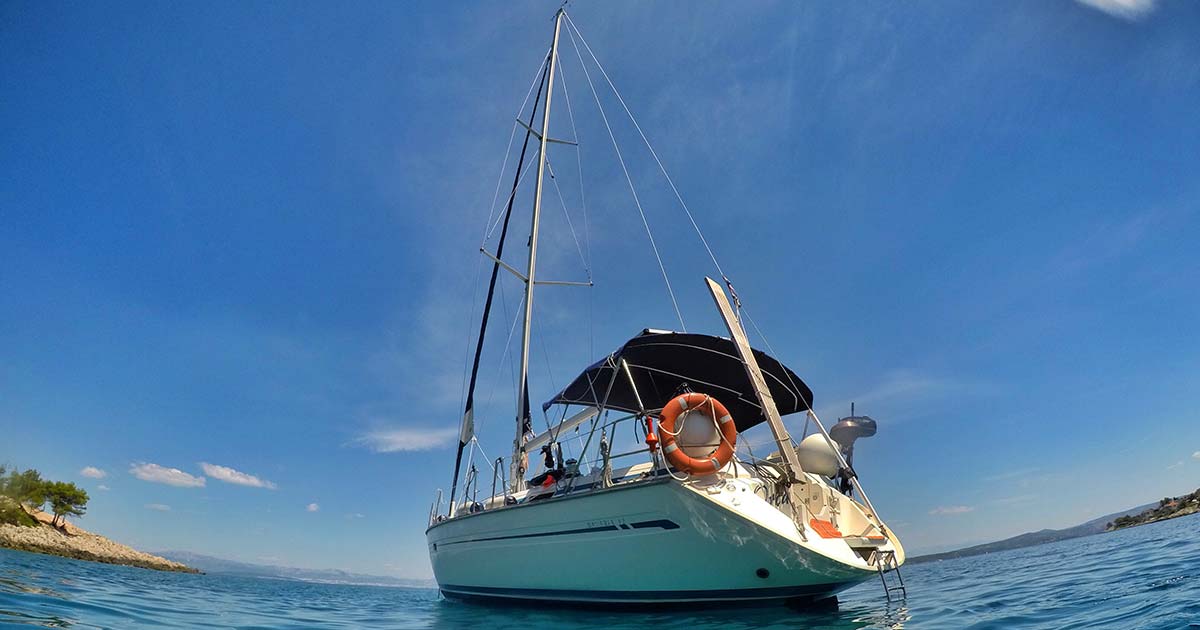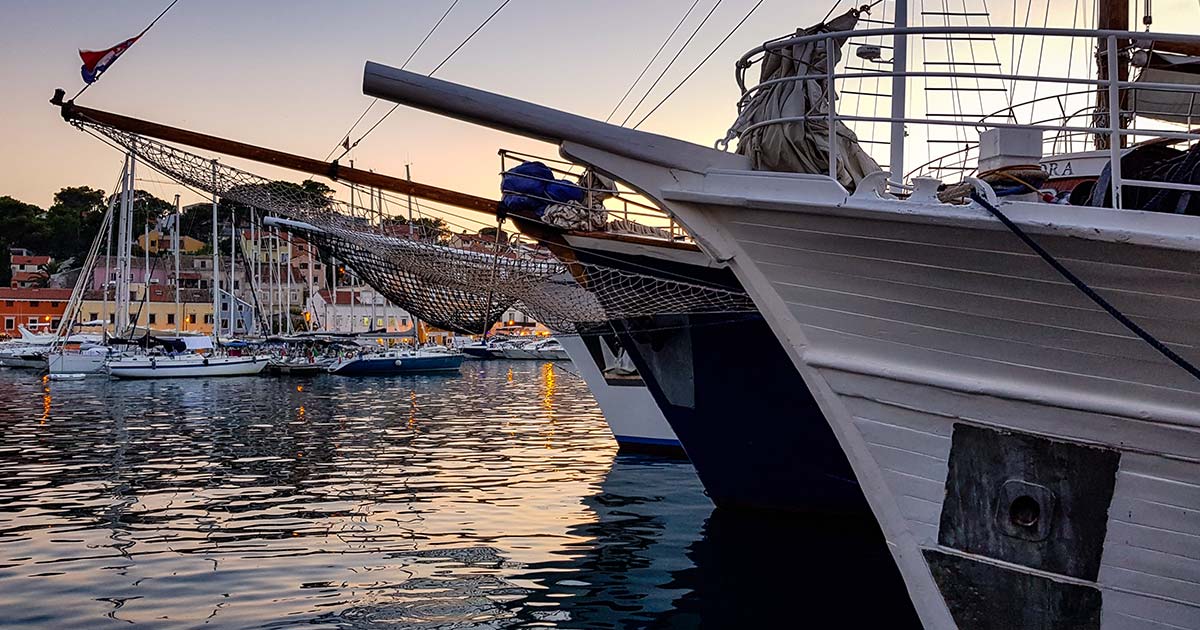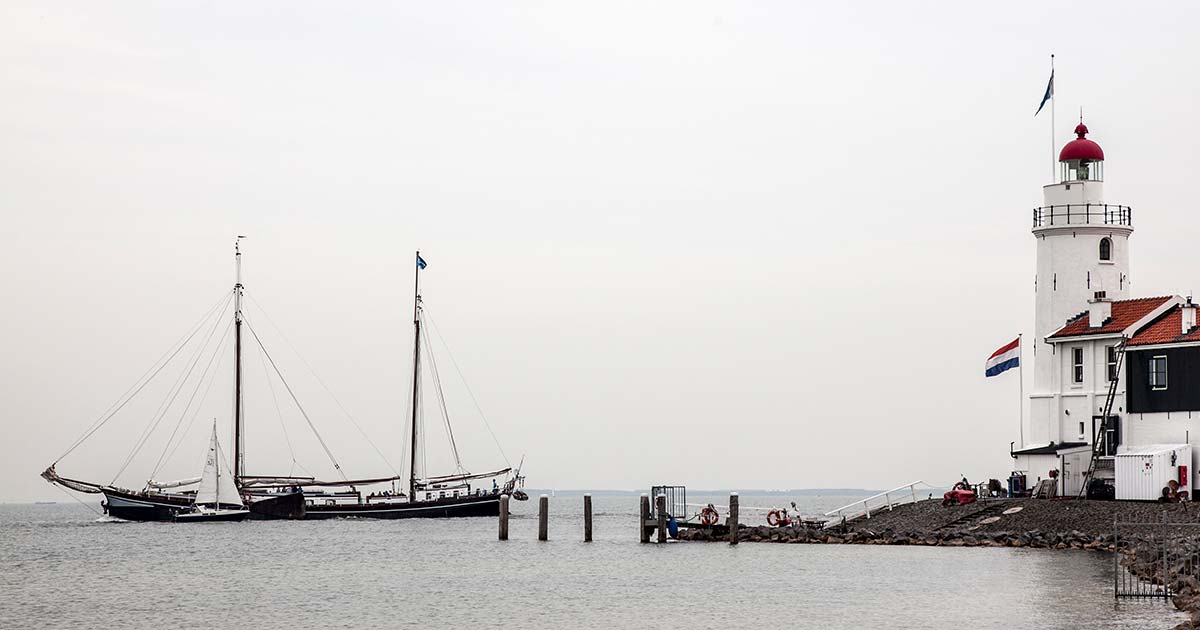
Living on a boat is a unique off the grid lifestyle that has intrigued adventuring souls for ages. For some, it’s an escape from the repetitiveness of everyday life; for others, it’s simply about the freedom and adventure that living on the water can bring. Regardless of the reason, living on a boat requires a certain level of dedication, preparation, and willingness to embrace a different lifestyle.
Considerations for Those Who want to Live on a Boat
First and foremost, before choosing to live on a boat, it is vital to consider the practical and financial implications of such a decision. The daily cost of living on a boat varies significantly depending on factors such as type, size, age, and vessel location. For example, the upfront expenses of purchasing a new or used boat can range anywhere from a few thousand dollars to multi-million-dollar yachts. It is essential to factor in the cost of upkeep, including maintenance, fuel, insurance, and dockage fees. Moreover, living in a marina or dock adds to the overall cost, along with utilities such as electricity, water, and internet services.
The type of boat also plays a role in determining the level of comfort and amenities available. While some boats offer basic essentials, such as a bed, bathroom, and kitchenette, others offer lavish living spaces with high-end appliances, spacious bedrooms, and panoramic views of the water. However, with luxury comes added expenses and maintenance, which may not be feasible for everyone.
Give it a test run!
Before setting sail, it’s important to understand the lifestyle and figure out if you can actually handle living on the sea. The first thing you should do is choose a marina that you can live in for 3 – 6 months. This is an important step to mentally and physically preparing to live at sea. Your body needs time to adjust, and your mind needs time to become accustom to this new way of living.
If you’ve determined that this is the lifestyle you want to live, then there are some steps that you need to take.
Research Thoroughly: Before making any decisions, conduct extensive research on the type of boat, equipment, and amenities that you’ll need to live on a boat, along with the costs and regulations in your area. Talk to people who have experience living on a boat and seek their advice on the challenges and benefits of a boat lifestyle.
Be Mindful of Safety: Living on the water requires that safety be a top priority. Make sure you have a sufficient safety plan in place, including proper safety equipment, navigation equipment, and a thorough understanding of boating safety regulations.
Prepare for Living on a Small Space: Living on a boat requires adapting to living in a much smaller space. You’ll need to downsize and maximize storage capacity, creatively arranging furniture, and appliances to make the most out of the limited space. Selecting multi-functional furniture such as a sofa bed or a wall-mounted foldable table can be an excellent way to save space.
Learn Boating Skills: Before living on a boat, it is essential to learn the fundamentals of boating, including how to navigate, steer and dock the vessel. Take a boating safety course, read boating books or watch tutorials online, and consider hiring a professional
Choosing a Boat

Research, Research, Research. When choosing a boat, don’t jump right into the first cheap one that you find on craigslist. The upkeep on these things can be incredibly expensive, and if you don’t know what you’re doing you could be in for some unwelcome surprises.
When choosing a boat you should consider the following things:
- When considering how much to spend on a boat, take the amount that you are willing to pay and subtract about 30%. You will want that extra 30% for any maintenance issues that may pop up.
- Check for Leaks – Before purchasing a boat, do a thorough inspection to check for leaks. Any leaks need to be taken care of right away. Mold will become a huge problem, and can make your boat unlivable if left unchecked.
- Mold – Mold can be a problem so make sure you check the boat for signs of mold.
Where to Dock

Anchoring. Anchoring or ‘living on the hook’ is going to be your cheapest option, but it also means that you’ll have to be fully self-sufficient. To be able to pull this type of living off, you must.
- Have a way to generate your own electricity (solar wind etc…)
- Have a way to store enough water, or be able to generate your own drinking water.
- Be mentally and physically prepared to live at sea.
- Buy a good dinghy for coming to shore for work, supplies, etc.
Mooring. Another cheap option is called mooring. A mooring ball is a method of anchoring your boat without an anchor. It works by attaching your boat to a chain that’s attached to a heavy sunken cement block. There is usually an initial deposit or setup fee and a small monthly fee is usually involved.
Marina Living – Depending on the location, this option can be pretty similar to an RV Park. A growing number of Marinas offer electrical hookups and supply stores within walking distance of your boat.
We highly recommend Marina living for those who are just starting out. Before setting sail, marina living can help make sure you’re able to handle the lifestyle. Choose a marina that you can live at for 3 – 6 months. This is a crucial step to mentally and physically preparing to live at sea.
Local Laws: Another critical aspect to keep in mind is the boating regulations and laws in the area where you plan to dock or sail. Each state or country has its own set of rules and restrictions, including licensing requirements, zoning laws, and boating safety regulations. Furthermore, the weather and tide conditions can significantly affect your comfort and safety on a boat, and it’s essential to be mindful of such factors.
Safety Considerations

This type of lifestyle is filled with hazards. While it is enjoyable and liberating, if unprepared it can quickly become a nightmare.
- Pirates – Believe it or not, in certain parts of the world this is still a pretty big problem. Make sure you have the proper equipment to be able to defend yourself in case of attack. (SHOTGUN!)
- Make sure you know what you’re doing! – If you are not familiar with boating, you should take at least 6 months of time to cruise around the shore. I highly recommend taking lessons and becoming familiar with your boat before sailing off into the sunset.
- Communications – Cell phones when near shore, satellite communications, a marine radio, and a Ham Radio should all be on the top of your list of considerations.
- Boats require a lot of maintenance. Make sure you know the ins and outs of your boat, and how to troubleshoot anything that might go wrong when you’re out at sea.
The Benefits of Boat Living
Despite the challenges and considerations, living on a boat can offer many benefits, such as increased freedom, privacy, and the joy to explore different locations. Here are some of the advantages of living on a boat that may appeal to you:
Minimalist Lifestyle: Living on a boat requires downsizing and simplifying your possessions, making it an ideal choice for those who yearn to live with less. The limited space on a boat forces you to make do with what you have, and prioritize what’s essential. This approach encourages a minimalist lifestyle and helps to declutter your life.
Close Connection with Nature: Living on a boat provides a unique opportunity to be surrounded by nature, including stunning sunsets, calm waters, and wildlife. The sound of water lapping against the hull of the boat can be a relaxing and therapeutic experience, helping you to disconnect from the stresses of everyday life.
Ability to Travel and Explore: One of the most significant advantages of living on a boat is the ability to travel and explore different locations. Whether you want to cruise down the coastline or navigate through canals and rivers, living on a boat offers unparalleled freedom and adventure.
Affordability: Living on a boat can be more affordable than traditional housing, depending on the type of boat and location. While the upfront cost may be higher, the ongoing expenses can be lower compared to a mortgage or rent.
Sense of Community: Living in a marina or dock offers the opportunity to become part of a community of like-minded individuals who share a passion for all things boating. The sense of camaraderie and socialization can be a significant factor for those who crave a close-knit neighborhood or environment.
Check out our Off the Grid section for more unconventional and alternative ways of living.




Harley should be easy to put on a trawler. Most sizeable ones have built in cranes. If it doesn’t, almost every marina has a crane you can use for loading and unloading the bike. Just have a safe way to secure it to the boat or it will end up on it’s side. Bring spare parts.
We had a sailboat tied up at a condo with some understanding owners. Most people get scared when they can’t see land anymore. After a day or two the whole boat thing gets old. And it is lonely out there unless you have a friend or two along. I also would like to escape the rat race, but I don’t want to become a hermit either. I can’t afford a super yacht with bikini babes as hood ornaments.
Hello!!! I would like to jump into this lifestyle…I just turned 40 and have had an “awakening” as to the life programmed into me and wish to live a minimum impact/off grid life as possible. l live in Tampa Florida currently, anyone have any suggestions as to a place to learn???
Warm Regards..Love and LIght!
Jennifer
Hey Pete, my name is Janette an I lived on a houseboat for several years living every minute if it. ts a lifestyle you either love or don’t. Wishing you lots of luck in your life’s journey. I understand the lonely part. Luckly I had my dog as a companion. As I grow older I find myself lonely also. I’m almost 66 yrs now an really miss life on the water. Best wishes
Jhignight@gmail
You’re right about saying that I should do my research before I choose to go to a dealership to buy a fishing boat. I’ve heard that Lund fishing boats are great, but I’ll see if the rumors are true. I’m sure that my father will like receiving such a present, but I’ll still keep the receipt just in case.
I live on a log raft on the Yukon river in Alaska in summer. Nice lifestyle but better to be rafting down the river than tied on shore as I have been last 2 summers. Tired of so many questions etc from everyone at the bridge. Enjoy working with NATC at Yukon river camp but if I raft next summer it will be going down river, not tied on the beach. Love rafting down river. That’s what they are made for. See “Alaska Log Raft” on YouTube. That’s me and my son and friends. Never get rich with a log raft but a nice life.
What a bunch of bull shit on here.